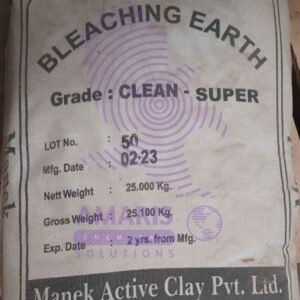Calcium Chloride Explained: A Comprehensive Guide to Its Properties and Uses
Calcium chloride (CaCl₂) is one of those unsung heroes in the world of chemicals—it’s everywhere, but not many people realize it! From keeping roads safe in winter to being an essential ingredient in many industrial applications, this simple compound has a range of fascinating uses. Let’s dive into the properties and versatility of calcium chloride!
What Is Calcium Chloride?
Calcium chloride is an ionic compound made up of calcium (Ca²⁺) and chloride (Cl⁻) ions. It’s typically found as a white, crystalline solid, but it can easily dissolve in water, releasing heat in the process. This exothermic reaction makes it useful in many applications where heat is needed.
Properties of Calcium Chloride
- Hygroscopic Nature: Calcium chloride is highly hygroscopic, meaning it attracts moisture from the air. This is why it’s commonly used as a drying agent in industrial settings.
- Highly Soluble: It’s incredibly soluble in water, and this property is vital in many of its uses. As it dissolves, it releases a significant amount of heat, making it perfect for de-icing roads and even in heat packs.
- Corrosive: While it’s great for de-icing, calcium chloride can be corrosive to metals and concrete, so care is needed when using it for these purposes.
Uses of Calcium Chloride
- Road De-Icing: In the winter months, calcium chloride is often spread on icy roads. Its ability to lower the freezing point of water helps melt the ice, making it safer for driving. Plus, it works at much lower temperatures than regular salt!
- Dust Control: In dry, dusty environments like construction sites, calcium chloride is used to control dust. It binds to particles and keeps them from becoming airborne, ensuring a cleaner work environment.
- Food Industry: Surprising as it may sound, calcium chloride also makes an appearance in the food industry! It’s used to firm up fruits and vegetables, and as a preservative in canned goods, especially in pickles.
- Concrete: Calcium chloride accelerates the curing process of concrete, making it a go-to in cold weather construction projects. It helps concrete harden faster, reducing the risk of damage from freezing temperatures.
- Water Treatment: It’s commonly used in water treatment plants to remove impurities. Calcium chloride helps in precipitating out harmful particles from water, making it safer for consumption.
Conclusion
From everyday winter solutions to high-tech industrial uses, calcium chloride is a true multitasker! Whether you’re salting your driveway or working on a construction site, this humble compound is doing its job in the background, helping keep things running smoothly. Now that you know just how versatile and essential calcium chloride is, you’ll never look at those white crystals the same way again!










Add comment